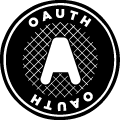 Yesterday Hannes Tschofenig announced an OAuth Security Advisory on Authorization Server Mix-Up. This note announces the publication of the strawman OAuth 2.0 Mix-Up Mitigation draft he mentioned that mitigates the attacks covered in the advisory. The abstract of the specification is:
Yesterday Hannes Tschofenig announced an OAuth Security Advisory on Authorization Server Mix-Up. This note announces the publication of the strawman OAuth 2.0 Mix-Up Mitigation draft he mentioned that mitigates the attacks covered in the advisory. The abstract of the specification is:
This specification defines an extension to The OAuth 2.0 Authorization Framework that enables an authorization server to provide a client using it with a consistent set of metadata about itself. This information is returned in the authorization response. It can be used by the client to prevent classes of attacks in which the client might otherwise be tricked into using inconsistent sets of metadata from multiple authorization servers, including potentially using a token endpoint that does not belong to the same authorization server as the authorization endpoint used. Recent research publications refer to these as “IdP Mix-Up” and “Malicious Endpoint” attacks.
The gist of the mitigation is having the authorization server return the client ID and its issuer identifier (a value defined in the OAuth Discovery specification) so that the client can verify that it is using a consistent set of authorization server configuration information, that the client ID is for that authorization server, and in particular, that the client is not being confused into sending information intended for one authorization server to a different one. Note that these attacks can only be made against clients that are configured to use more than one authorization server.
Please give the draft a quick read and provide feedback to the OAuth working group. This draft is very much a starting point intended to describe both the mitigations and the decisions and analysis remaining before we can be confident in standardizing a solution. Please definitely read the Security Considerations and Open Issues sections, as they contain important information about the choices made and the decisions remaining.
Special thanks go to Daniel Fett (University of Trier), Christian Mainka (Ruhr-University Bochum), Vladislav Mladenov (Ruhr-University Bochum), and Guido Schmitz (University of Trier) for notifying us of the attacks and working with us both on understanding the attacks and on developing mitigations. Thanks too to Hannes Tschofenig for organizing a meeting on this topic last month and to Torsten Lodderstedt and Deutsche Telekom for hosting the meeting.
The specification is available at:
An HTML-formatted version is also available at:
 The CBOR Web Token (CWT) specification now establishes the IANA CWT Claims registry and registers the CWT claims defined by the specification. The application/cwt CoAP content type is now also registered.
The CBOR Web Token (CWT) specification now establishes the IANA CWT Claims registry and registers the CWT claims defined by the specification. The application/cwt CoAP content type is now also registered.

